Earth
Sign up for our newsletter
We summarize the week's scientific breakthroughs every Thursday.
-
 Microbes
MicrobesThis microbe makes a meal of plastic
A newly identified bacterium can break down plastic waste.
-
 Environment
EnvironmentDome effect leaves Chinese megacities under thick haze
Airborne black carbon lowers an atmospheric boundary, trapping pollution around major cities and worsening air quality, researchers propose.
-
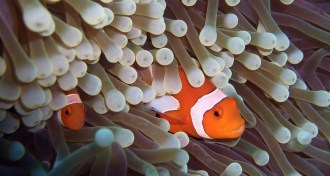 Animals
AnimalsIn the Coral Triangle, clownfish figured out how to share
In the Coral Triangle in Southeast Asia, an area of rich biodiversity, clownfish species often share anemones, a new study finds.
-
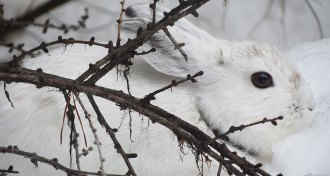 Animals
AnimalsClimate change now bigger menace than forest loss for snowshoe hares
Shorter snow seasons push climate change ahead of direct habitat loss as menace for Wisconsin snowshoe hares.
By Susan Milius -
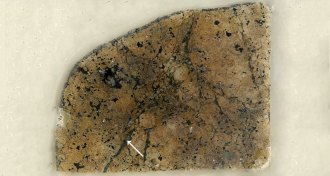 Earth
EarthOne of Earth’s missing minerals found locked inside meteorite
Scientists have discovered the last undiscovered dense mineral of the pyroxene group in a meteorite.
-
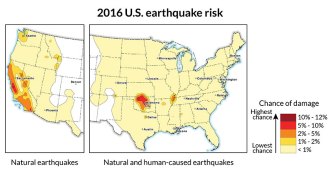 Earth
EarthQuake risk in parts of central U.S. as high as in fault-filled California
A new report from the U.S. Geological Survey shows an increased earthquake hazard from human activities such as the disposal of fracking wastewater.
-
 Climate
ClimateMaximum size for Arctic sea ice hits a new low
Warm temperatures helped drop the Arctic sea ice maximum to the smallest size on record.
-
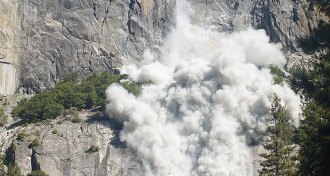 Earth
EarthBeware of rockfalls in warm weather
Cracks in cliff faces grow and shrink as temperatures warm and cool, new research shows.
-
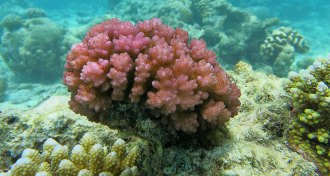
-
 Climate
ClimateOrganic molecules help fatten cloud-making water droplets
Cloud-forming water droplets can grow larger thanks to organic molecules on the exterior of the drop, new research suggests.
-
 Agriculture
AgricultureReaders debate GMOs
Genetically-modified food, nuclear fusion, black holes and more reader feedback.
-
 Agriculture
AgricultureClimate change threatens quality of French, Swiss wines
Wine quality could suffer as climate change desynchronizes warm temperatures and droughts, preventing grape growers from harvesting at the optimum time.